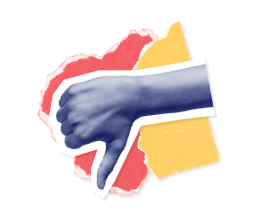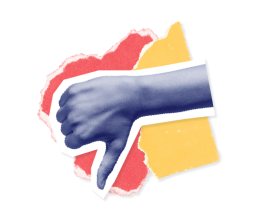
FOR IMMEDIATE RELEASE
May 10, 2011
CONTACT: Robyn Shepherd, (212) 519-7829 or 549-2666; [email protected]
Holly Dickson, (501) 374-2660
ACLU Demands That Two Public School Districts in Little Rock Stop Censoring LGBT Websites
Organization Has Challenged Illegal Filtering In School Districts Across The Country As Part Of "Don't Filter Me" Initiative
LITTLE ROCK - The American Civil Liberties Union and the ACLU of Arkansas sent letters today to the Little Rock School District and eStem Public Charter Schools demanding that the schools cease viewpoint-based censorship of web content geared toward the lesbian, gay, bisexual and transgender (LGBT) communities. The organization has sent demand letters to school districts across the country as part of the organization's national "Don't Filter Me" initiative, which seeks to combat illegal censorship of pro-LGBT information on public school computer systems.
The campaign asked students to check to see if web content geared toward LGBT communities - a frequent target of censorship in schools - is blocked by their schools' web browsers, and then report instances of censorship to the ACLU LGBT Project.
Teachers in Little Rock School District say that the filtering of LGBT-related content harms students and conflicts with schools' education mission.
"Of course we need to prevent students from getting to sexually provocative material on the web, but we shouldn't be in the business of blocking reputable websites because they contain gay content that isn't sexual in nature," said Erica Ivy, a teacher at McClellan Magnet High School. "How are we supposed to help students grow to be informed, aware citizens when our schools rule out an entire category of information without just cause?"
"As an educator, I know that many students don't have computers at home, or live in homes where it would be dangerous for them to try to look up any sort of LGBT information, even suicide prevention information," said Marshall Sladyen, High Schools That Work and Smaller Learning Communities Coordinator at Hall High School. "All of our students should have equal access at school to age-appropriate information that can help them do things like research a paper for class, find support or learn about their legal rights."
"It's simply unconstitutional for schools to pick and choose which points of view they'll let students have access to, but that's exactly what both the Little Rock School District and eStem Public Charter Schools have been doing," said Holly Dickson, staff attorney of the ACLU of Arkansas. "They've been allowing access to abstinence websites and harmful so-called
"reparative therapy sites, but not legitimate sites with appropriate information for LGBT youth and their allies. It is completely unacceptable."
Although the Little Rock School District and eStem use different filtering software, they both have inappropriately activated a specific filter to target LGBT content. The Little Rock School District has activated a feature on software provided by Fortiguard to block all websites categorized as "Homosexuality." eStem has configured its software from M86 to block websites categorized as "Lifestyle." These anti-LGBT filters can be removed without impairing the schools' ability to block pornographic or sexually explicit content as required by federal law.
"We are seeing a pattern across the country in which school districts have enabled anti-LGBT filters without understanding how they work," said Joshua Block, staff attorney with the ACLU LGBT Project. "Software companies need to make schools understand that these products are programmed specifically to target LGBT-related content that would not otherwise be blocked as inappropriate, and that these types of filters are not required by law. There is no legitimate reason why any public school should be using a web filter that's designed to discriminate."
When used by a public school, programs that block all LGBT content violate First Amendment rights to free speech, as well as the Equal Access Act, which requires equal access to school resources for all extracurricular clubs. This means that gay-straight alliances and LGBT support groups must have the same access to national organizational websites that help them to function, just as other groups such as the Key Club and the chess club are able to access their national websites. By blocking access to LGBT websites, schools deny helpful information to gay-straight alliances and other support groups that could be vital for troubled LGBT youth who either don't have access to the Internet at home or do not feel safe accessing such information on their home computers.
A video showing students how to test whether or not their school is illegally filtering content and providing instructions for reporting censorship can be seen here: www.aclu.org/lgbt-rights/dont-filter-me
Students who want to report unconstitutional web filtering at their schools can fill out a form at: action.aclu.org/dontfilterme
More information on the ACLU's work on LGBT school issues can be found here: www.aclu.org/safeschools
